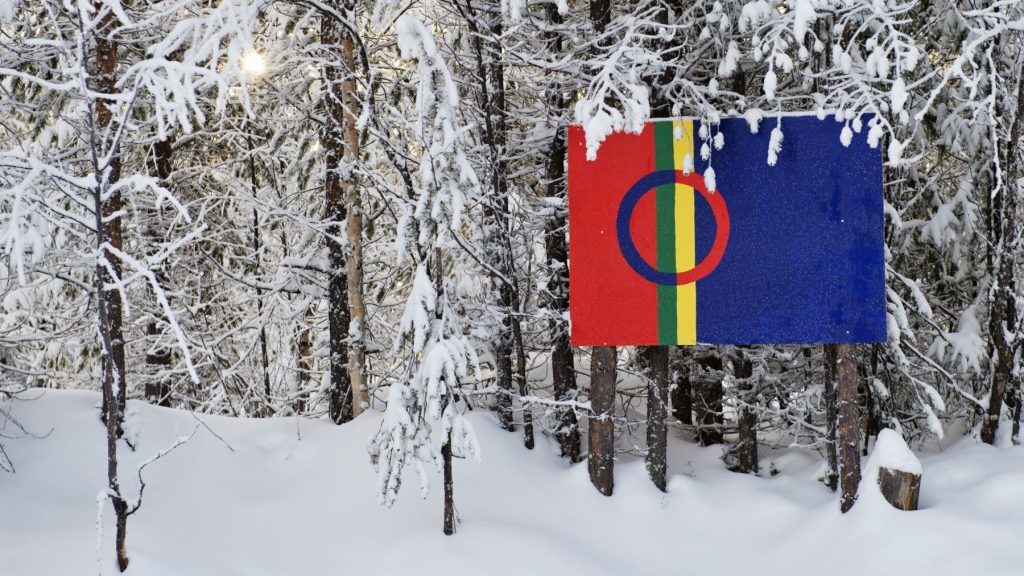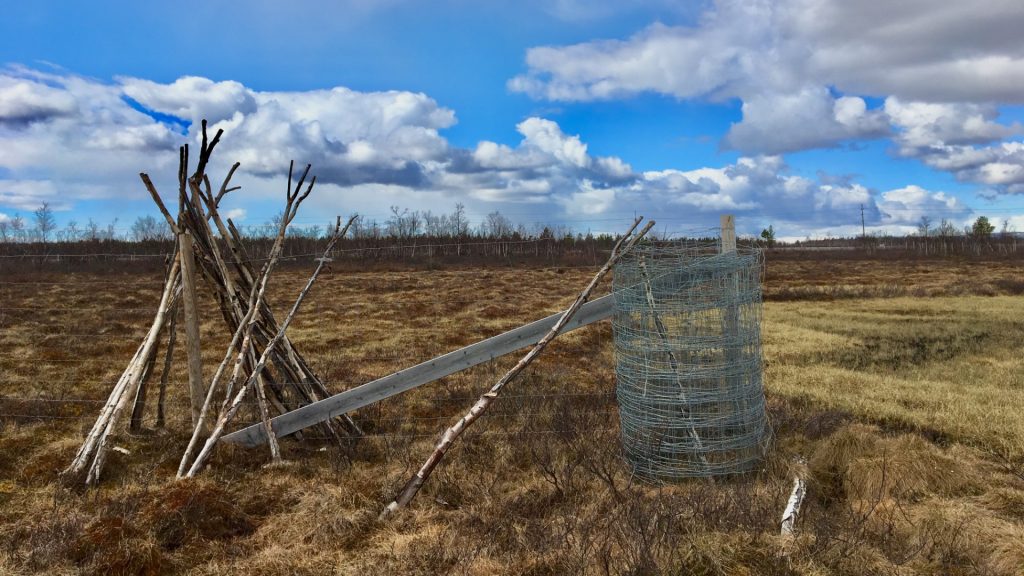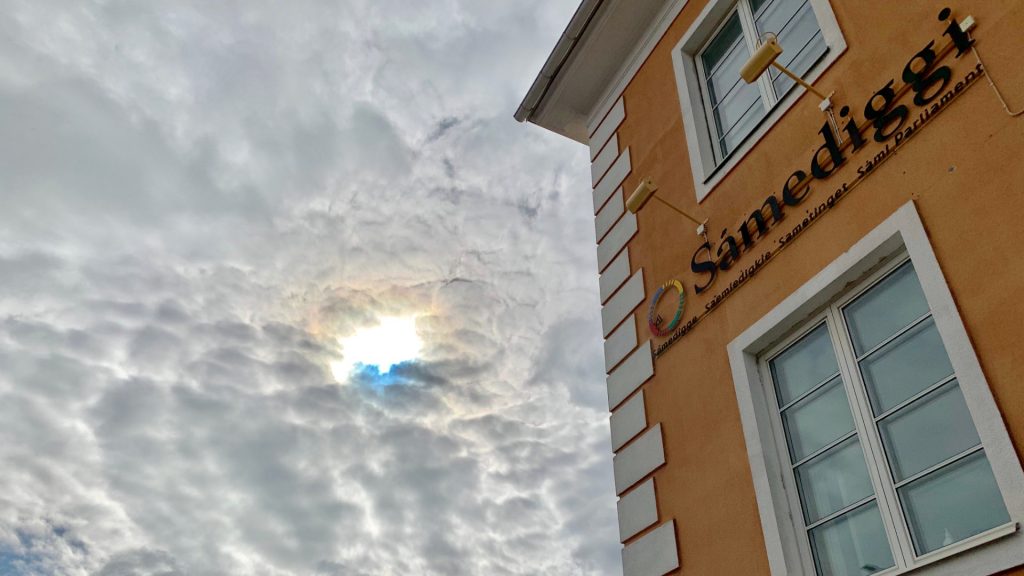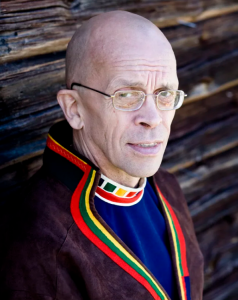New report spotlights hate crimes against Sami in Sweden

The Swedish National Council for Crime Prevention (Brå) has released its first report on hate crimes against the Sami community, highlighting both similarities and notable differences compared to crimes against other minorities.
The deliberate targeting of reindeer in Sami areas is one example that sets these incidents apart from typical hate crime patterns, the report said, with perpetrators— often landowners, hunters or farmers—believing they are limited by reindeer herding rights and don’t want the animals in certain areas.
“It was the most common crime we saw in the police reports,” Lisa Wallin, the study’s project leader, told Eye on the Arctic. “We saw deliberate hit-and-runs, dogs sent to chase or attack reindeer, or reindeer deliberately run over by snowmobiles or shot.”
These incidents usually happen in remote forested areas of northern Sweden and remain unsolved given the lack of eye-witnessesses, the report said.
“This makes it a difficult topic to both research and to investigate these crimes as well,” Wallin said.
Hate crimes reverberate in communities
Reindeer herders are also subjected to threats, and can experience increased racist incidents during legal proceedings to affirm Sami rights, the report said. Examples of crimes including vandalizing or burning down reindeer feeders, destroying vehicles, or shooting at reindeers or sometimes reindeer herders themselves.
The researchers found that the crimes have had significant impacts on the wider Sami community, leading to increased worry and insecurity. Many community members can become hesitant about wearing traditional Sami clothing in public or revealing their Sami identity in social settings due to fear of potential consequences.
“Although the crimes often target the reindeer herding community specifically, it affects all the Sami minority due to the immense significance of reindeer in Sami culture,” Wallin said.
“The killing of reindeer represents a wish to eradicate Sami rights and by extention the Sami people.”

The report says another distinctive aspect of hate crimes against the Sami community is that the victim and perpetrator are frequently acquainted.
“It is something different than other minorities we’ve looked at because, unless Sami are wearing their traditional clothes, they are not immediately identifiable,” Wallin said. “So for someone to target them it would be someone who knows them already, someone who they work with, go to school with, or who knows they are part of a reindeer herding family.”
This significantly affects victims’ decisions to report the crime and pursue legal action, the report found.
“Because this is often something happening in small communities, it’s very difficult to report under those circumstances because you’re going to still be seeing that person everyday,” Wallin said.
Specialized hate crime unit needed in North
Among the recommendations in the report is increased education about Sami, Sami culture and reindeer laws at all levels of society from schools to police.
The report also recommends a more proactive approach from law enforcement agencies so Sami are more comfortable reporting hate crime incidents against them and police are more aware of how Sami are targeted.
It also recommends a specialized hate crime unit be stationed in the Arctic.
“We have three of these specialized units in Sweden, but all of them are in the three largest metropolitan areas, with none of them in the northern part,” Wallin said.
“That means we have an Indigenous minority that cannot have the same resources and support as other minorities in different parts of Sweden because they’re in the North.”
Urgent need for better data
The study authors say Sami are often left out of government studies looking at racism and prejudice against minorities and that in-depth additional studies on the Sami experience are urgently needed to establish a baseline and identify crime trends.

The Sami Parliament in Sweden said they welcome the report and that it’s a valuable addition to the body of knowledge of what Sami have long reported and observed.
Stefan Mikaelsson, a member of Sámi parliament plenary assembly as well as deputy chair of the board, said the need for improved statistics on Sami hate crimes is urgent.
“The lack of official data for the Sámi culture and livelihoods in public statistics should be embarrassing for Sweden,” Mikaelsson said in emailed comment.
“This has has to be dealt with in order to find the problem situations and solve them. The OECD Policy Reviews: Linking the Indigenous Sami People with Regional Development in Sweden, [also] singles out the lack of data as a huge problem.”

Mikaelsson said the Sami Parliament hopes the report leads to concrete action.
“The Sámi parliament would like to see a genuine commitment from government representatives, state authorities as well as changed behaviour from environmental prosecutors and the police force,” he said.
“Better state funding of Sámi organizations, reindeer herding, as well as the Sámi parliament, would also make increased Swedish respect visible in remote municipalities in the North.”
Report springboard for recommendations
The report “Hatbrott mot samer” is the fourth report commissioned by the Swedish government looking at hate crimes against particular minorities in the country.
To do the research, Brå combed police reports, examined preliminary investigations and conducted interviews themselves. They also worked with a reference group made up of representatives of different Sami groups to advise on the project and how it was researched, as well as read the report before it was published.
Previous reports looked at hate crimes against the Jewish population, Afro-Swedes and the Muslim community.
The reports aim to gather detailed information that will allow authorities to develop specific plans to address hate crimes in general, but also to formulate interventions tackling the unique crimes targeting various minority groups where necessary.
Brå is a government agency responsible for producing crime statistics in Sweden, researching crime trends, and participating in local crime prevention efforts.
Comments, tips or story ideas? Contact Eilís at eilis.quinn(at)cbc.ca
Related stories from around the North:
Canada: Health staff in Fort Smith receiving made-in-the-North anti-racism training, CBC News
Finland: Sami Parliament in Finland agrees more time needed for Truth and Reconciliation Commission preparation, Eye on the Arctic
Greenland: Danish PM apologizes to Greenlanders taken to Denmark as children in 1950s, Eye on the Arctic
United States: Alaska reckons with missing data on murdered Indigenous women, Alaska Public Media



